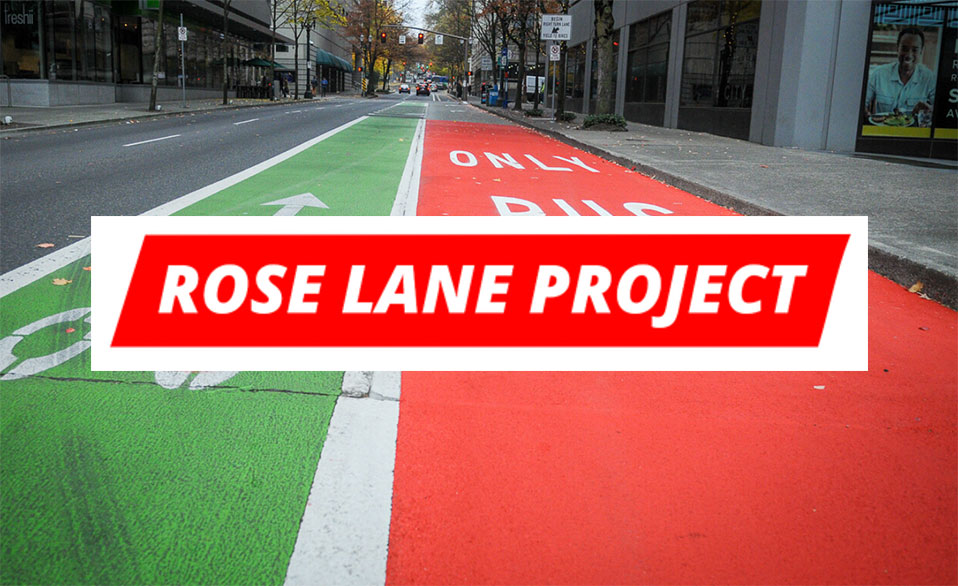“We are headed for catastrophe if we don’t make huge changes in the way we live and treat the earth and its limited resources. Concern is not enough, we need action.”
— Chloe Eudaly, PBOT Commissioner
The City of Portland officially kicked off the Rose Lane Project Thursday night at a special Portland City Council meeting that focused on climate change and was held on the campus of Portland Community College Southeast at 82nd and Division. It was a fitting time and place to unveil a project that could lead to the most significant transformation of how Portlanders get around since we built those damn freeways decades ago.
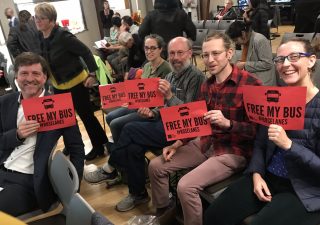
(Photo: J. Maus/BikePortland)
“Fast, frequent, full” was the mantra unveiled Thursday night that encapsulates PBOT Commissioner Chloe Eudaly’s strategy to speed up buses, increase service and boost ridership.
To meet goals adopted in the Climate Action Plan and Transportation System Plan, Portland needs to more than double the amount of daily commute trips made by transit by 2035. In PBOT’s words as published on the new Rose Lane Project website, “We have work to do.”
The Rose Lane Project is being pitched as an “accelerated implementation” of the PBOT’s Enhanced Transit Corridors plan which was adopted by City Council last year. So far, its development has been led by an internal advisory group convened by Eudaly’s Policy Director Jamey Duhamel. That group included: The Street Trust, OPAL, Urban League, Oregon Walks, Community Cycling Center, PAALF, Unite Oregon, APANO, Safe Routes Partnership, Better Business PDX, Rosewood Initiative, Portland State, Portland Bus Lane Project, and Verde.
At last night’s meeting, Eudaly sought council approval of the project’s initial report.
“We are deeply concerned about the climate and the world we are leaving for our children,” Eudaly said in an introduction of the report. Taking action on climate – and making sure that action benefits people of color — was a strong theme throughout the meeting and especially during the Rose Lane Project presentation.
Eudaly has embraced transit because she feels it’s the most efficient, equitable, and sustainable way to move lots of people. Here’s an excerpt from her remarks:
“We are headed for catastrophe if we don’t make huge changes in the way we live and treat the earth and its limited resources. Concern is not enough, we need action.
I asked PBOT staff to do a quick, back-of-the-envelope estimate on the kind of change we need to see in order to have a fighting chance to avert the path we are on. What they came up with is that every resident of Portland who currently drives a single-occupancy vehicle needs to reduce their car trips by 50%. For those of us who live in bikeable, walkable, and transit-rich neighborhoods, that should be easily achievable — unless your car is part of your job or you have some other challenge. But for the nearly 50% who don’t live in such a neighborhood, or who have such long commutes that public transportation is not a viable option, we must do better.”
Advertisement
During Duhamel’s testimony last night, she spoke about the connection between transportation and race in a way I don’t think we’ve ever heard from someone in her position. Agencies love to talk about using an “equity lens” these days; but Duhamel’s approach feels more intentional than anything I’ve covered in the past. And while this approach might sound new to some Portlanders, it fall directly in line with a burgeoning mobility justice movement.
The problematic fact that our transportation system disproportionately impacts people of color is at the core of what the Rose Lane Project wants to fix. Duhamel testified that this inherent bias is why their approach focused first on building relationships with community groups that make up their internal advisory panel. Their approach put the expertise of people with lived experience front-and-center. It brought voices of people on the frontlines of disparity to a level of influence on par with traditional inputs like the expertise of planners and engineers or traffic data and modeling.
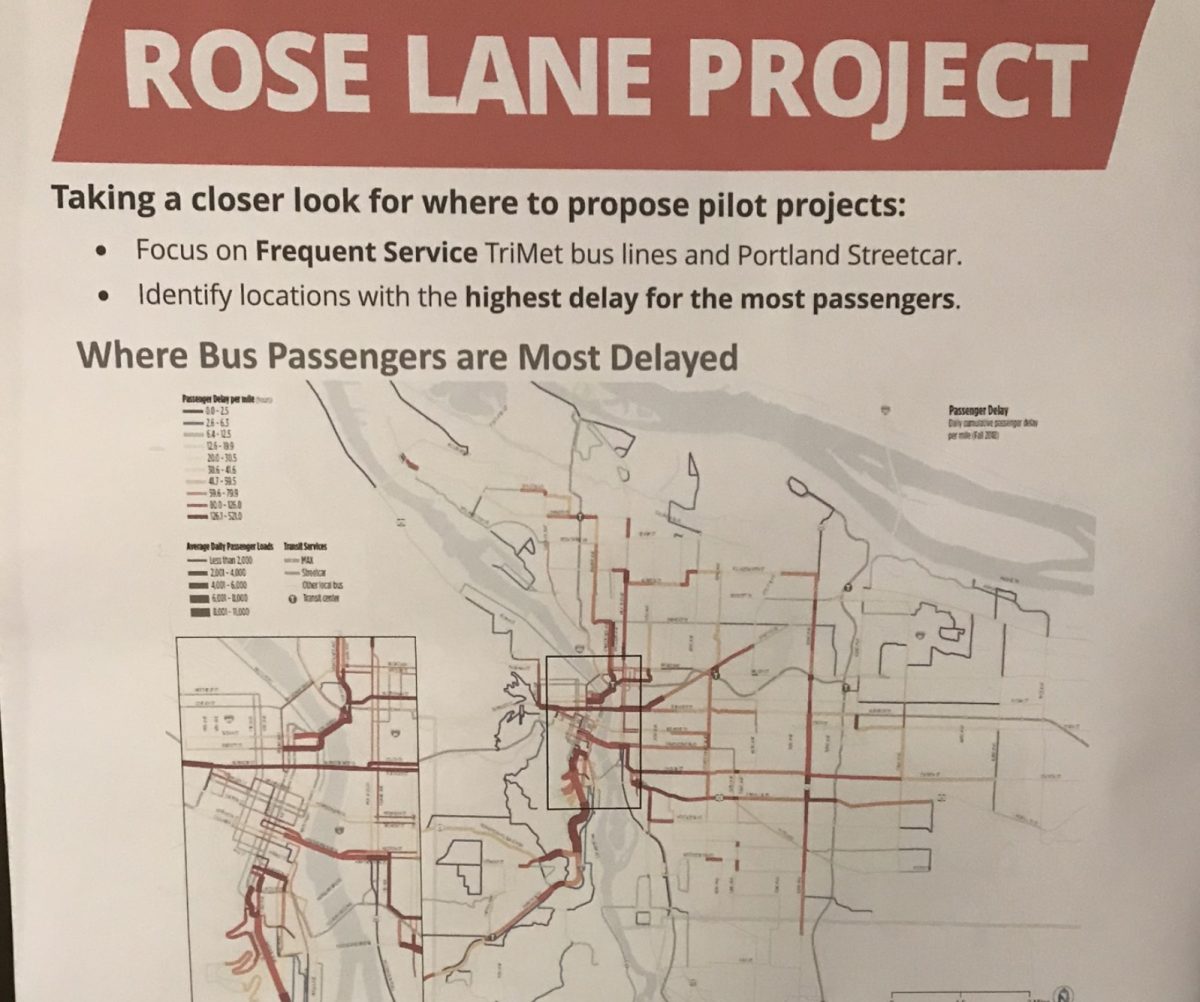
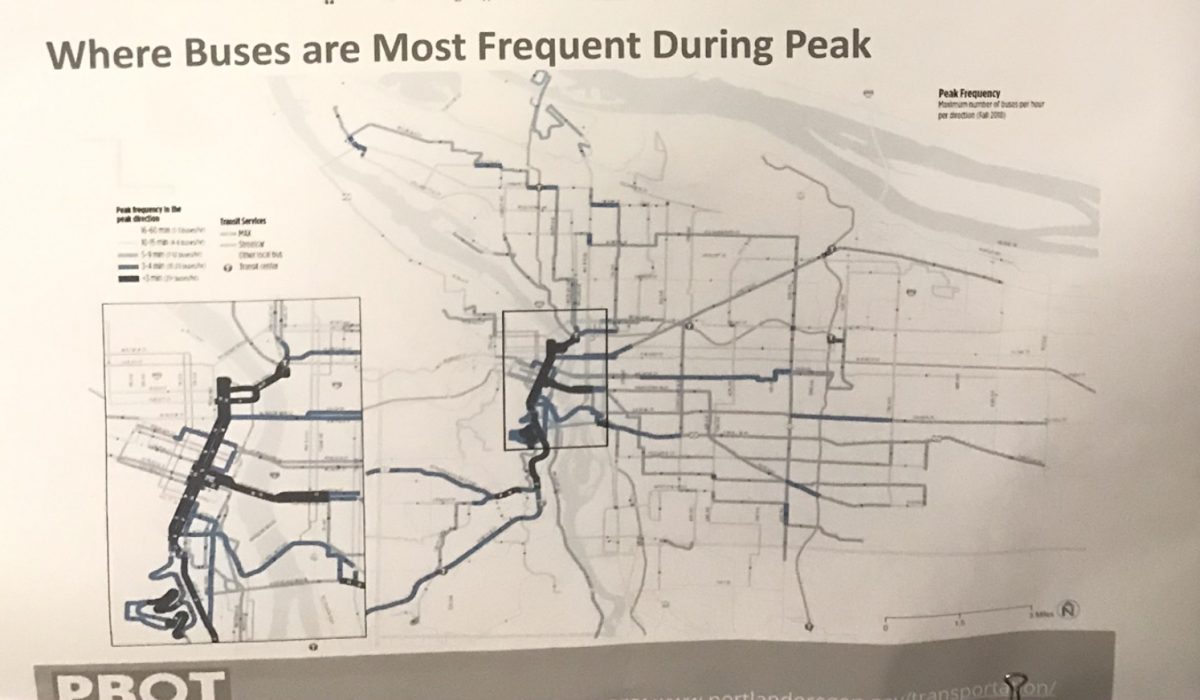
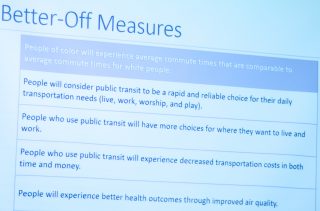
Duhamel said root disparities in the current system prevent us from achieving results that would correct them and that any additional planning work is, “Either actively dismantling systems of racism and oppression or it is actively causing additional harm.”
“Our primary goal is to allow people of color to reduce their commute time.”
— Jamey Duhamel, Commissioner Eudaly’s policy director
With this frame, Duhamel said they’ve identified commute times as a “condition of inequity causing harm to people of color”.
Citing U.S. Census data, Duhamel shared that the average black commuter spends an additional five minutes each way commuting to work. That pencils out to one week a year sitting in traffic. “Add to that, research that finds commute times are the single most important factor that helps people out of poverty and into economic opportunity,” Duhamel testified, “and it becomes crystal clear that access to reliable and rapid transportation must be a priority and must benefit people of color first and foremost. We cannot create a better transit system that doesn’t incorporate the needs of the communities that are suffering the most disparities because our transportation system was never originally designed to serve them to begin with.”
To put a finer point on it: “Our primary goal is to allow people of color to reduce their commute time,” Duhamel said.
How will they make sure the proposed projects benefit people of color and others who are currently underserved? She said they took PBOT’s initial route recommendations (based on traditional metrics like congestion) and applied “people-based metrics” informed by the expertise of the advisory panel.
What exactly will the proposed routes look like? Duhamel said we can expect them to be long corridors. “We’re not going piece-meal like the Central City in Motion plan,” she said, “The Rose Lane Project will be a citywide network… from southwest to north, northeast to east, it’s the entire city.”
It’s not clear yet where the funding will come from. Duhamel said they’re looking at a variety of source, including Portland’s award from the American Cities Climate Challenge. The first projects will be “low-hanging fruit” and will be completed in the coming year. By summer 2021 the entire network should be completed.
The proposed map of routes should be out by the end of this month and a full plan is expected to be up for a City Council vote in mid-February 2020.
A new website is now live, an online survey is coming soon, and PBOT has announced three upcoming open houses:
– Tuesday, December 3, 5:30 – 7:30 PM, Rosewood Initiative
– Saturday, December 7, 2:00 – 4:00 PM, North Portland Library Community Room
– Monday, December 9, 5:30 – 7:30 PM, White Stag Building
— Jonathan Maus: (503) 706-8804, @jonathan_maus on Twitter and jonathan@bikeportland.org
— Get our headlines delivered to your inbox.
— Support this independent community media outlet with a one-time contribution or monthly subscription.

